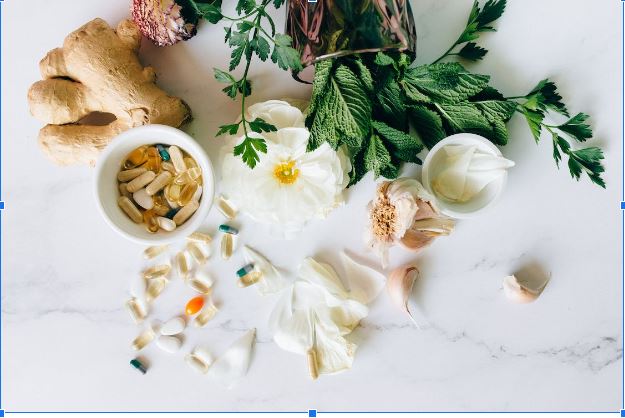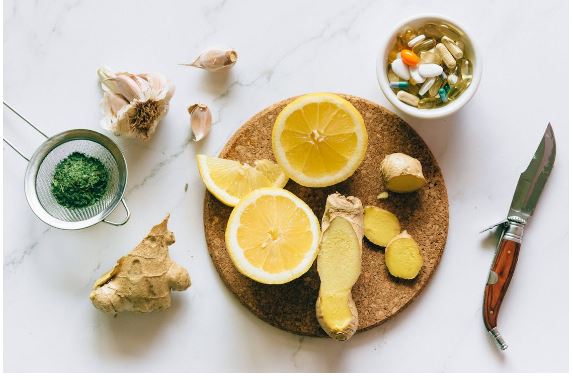Natural Remedies for Reducing Inflammation
An injury or illness triggers inflammation in the body. It helps the body heal in the short term. Inflammation over a long period of time can worsen or cause chronic health conditions. Inflammation occurs when the body’s immune system reacts to injury, infection, or trauma. The process involves various cells and chemicals that repair damaged tissue and fight off invading pathogens.
Alternatively, chronic inflammation can result in various diseases, including arthritis, diabetes, heart disease, and cancer. Therefore, reducing inflammation is essential to maintain good health and prevent chronic diseases. Because when you reduce the body’s inflammatory response, you can control numerous chronic diseases from developing.
Natural Ways of Reducing Inflammation
Naturally, reducing inflammation is possible. It depends on the cause of the inflammation, however, and how well natural remedies work.
Recurring infections, for example, can cause inflammation. Natural remedies may reduce symptoms, but the underlying problem will still need to be solved.
It may be beneficial for a person to speak with a doctor about their symptoms if inflammation affects their health. Here are some natural remedies for reducing inflammation:
Cold Compress
Inflammation and pain can be relieved by applying a cold compress to the affected area. Wrap a few ice cubes in a towel and apply it to the affected area for 15-20 minutes. Repeat this process several times a day as needed.
Heat therapy
Heat therapy can also help reduce inflammation and relieve pain. To reduce stiffness and promote blood flow, use a warm compress or bathe in warm water.
Massage
Gentle massage can help reduce inflammation by promoting blood flow and reducing muscle tension. Massage the affected area gently in a circular motion.
Epsom salt bath
Epsom salt contains magnesium sulfate, which has anti-inflammatory properties. Adding Epsom salt to a warm bath will reduce inflammation and muscle pain for 15-20 minutes.
Essential oils
Peppermint and eucalyptus oils have anti-inflammatory properties and can help reduce inflammation when applied topically. After mixing the essential oil with a carrier oil, such as coconut oil, apply a few drops to the affected area.
Ginger tea
Drinking ginger tea can help reduce inflammation and relieve pain. Let fresh ginger steep in boiling water for 10-15 minutes. Add honey to taste after straining the tea.
Turmeric milk
Turmeric milk is another natural remedy that can help reduce inflammation. Mix a teaspoon of turmeric powder with a cup of warm milk and drink it before bed.
Omega-3 supplements
It is possible to reduce inflammation and prevent chronic diseases by taking omega-3 supplements. Omega-3 supplements are available in capsule form and can be taken daily.
Probiotics
Probiotics are beneficial bacteria that can help reduce inflammation in the gut. They can be found in fermented foods such as yogurt, kefir, and kimchi.
Exercise
Regular exercise can help reduce inflammation by promoting blood flow and reducing stress. Choose low-impact exercises such as walking, swimming, or yoga to avoid further inflammation and injury.
Improving Your Diet
Last but not least, improving your diet. A fundamental way of reducing inflammation is through diet. Numerous studies show that improving one’s diet can significantly lower body inflammation. Those who consume a lot of saturated fat and refined sugar are more likely to suffer from inflammation. Glycemic index foods, such as refined carbohydrates, also contribute to the problem. So, if you’re wondering, does sugar cause inflammation? The answer is, unfortunately, yes!
Western diets typically include these foods. A simple swap can, however, help you start an anti-inflammatory diet. Reduce processed, sweetened, or fried foods in the diet and introduce more:
- Fruits and veggies have vitamins and minerals, as well as antioxidants.
- Seeds and nuts are good sources of vitamins, minerals, and healthy fats. Diabetic and cardiovascular disease risk is lower with almonds.
- Fiber lowers tumor necrosis factor (TNF), an inflammatory cytokine. Eat beans, legumes, and whole grains to increase fiber intake.
- Several herbs and spices, such as turmeric, are anti-inflammatory. Curcumin in turmeric is a compound that positively affects inflammatory conditions like arthritis.
- Polyphenols are antioxidants. Berries and black or green tea contain polyphenols.
- A healthy alternative to saturated fat is anti-inflammatory fats, like the ones found in fish, olives, and avocados. A fish high in omega-3 has been shown to reduce TNF levels, which are inflammatory compounds associated with inflammation.
Diet can also reduce inflammation by helping people maintain a moderate weight.
Regardless of a person’s diet, obesity is a risk factor for inflammation. Some of these substances affect inflammation levels due to the substances released by fat tissues. Excess body weight can still affect inflammation levels even if someone eats a balanced diet.
The Way Forward!
In conclusion, natural inflammation-reducing remedies are readily available for use on a daily basis. Inflammatory pain can be alleviated with these safe and effective remedies. However, if your symptoms persist or worsen, consult with your healthcare provider to rule out any underlying medical conditions.





